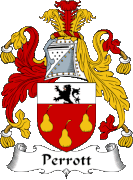Records from the Jacobite Rebellion of 1745
In 1745 Jacobite rebels sought to regain the British throne for the ‘Old Pretender’ James Stuart under the leadership of his son, the ‘Young Pretender’ Charles Stuart. Find My Past recently released a variety of papers associated with this event, accompanied by basic transcriptions of names, dates and places, however anyone interested in this period of British history would be advised to read the original images of the documents as there is a good amount of further information contained therein.
Joseph Parrot was among those committed to Whitehaven prison on suspicion of high treason following his arrest on 24th December 1745. Records from the year of his imprisonment state that he was born in Warwick, but a later entry – in 1746 – notes that he was arrested at Warwick Bridge which is a village in Cumbria. He had been apprehended by Everard Fawkener who was secretary to the Duke of Cumberland. Testimony from Elizabeth Parker of Brampton – which is four miles from Warwick Bridge – records that “during the time the rebels were at Brampton she saw Joseph Parrot frequently in conversation with the rebels and discoursing in a friendly manner”. Another resident of Brampton said that he saw Joseph acting as a guide for the rebels. A later record from May 1746 records that Joseph was out on bail.
A document recording examination of prisoners on The Norwich states that “Robert Parret was in the Welch Fusiliers in Captain Taylors Company taken Prisoner at Ghent”. The 23rd Royal Welch Fuzileers had been garrisoned at Ghent until July 1745 when the city fell to the French during the War of the Austrian Succession. It appears that the examination of Robert Parret took place on 26th August 1746 and was conducted by an Irish officer, Captain Stratford Eyre.
I have not as yet been able to establish where Joseph or Robert came from or what became of them – were they imprisoned, executed, sent overseas or freed? The testimony relating to Joseph suggests he may have been from Cumberland (Cumbria). The Royal Welch Fusiliers principally drew their recruits from North Wales, which may provide a clue to Robert’s origins. There are a number of possible entries in the Society database which may point to the identity of these two men – any suggestions or further information would be very welcome.
